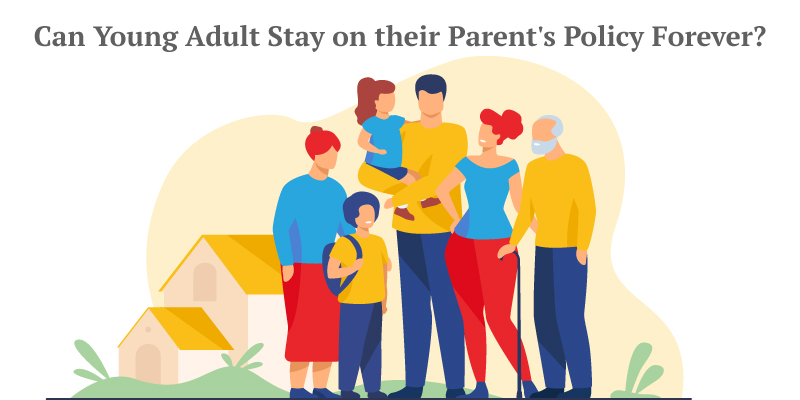How Long Can I Stay on My Parents’ Insurance
Young adults rely heavily on being able to remain covered under their parents’ health insurance plans for critical medical cost protections while finishing school, struggling to find decent employment, living at home to save money or transitioning to financial independence in their 20s. So a common question asked is: how long can I stay on my parents’ insurance legally?
The short answer is adult children can qualify as dependents on parental policies up to age 26 in the United States currently based on reforms enacted through the Affordable Care Act (ACA). Meeting carrier-specific eligibility criteria is required beyond just being under this upper age cap.

Here are key details all families should understand about the how long can I stay on my parents’ insurance dependent cutoff.
Background on the Age 26 Provision
Historically prior to 2010 and the ACA becoming US federal law, health plans only considered children eligible dependents up to ages ranging 19 to 23 depending on specific state regulations and carrier rules on terminating dependent enrollments after adolescence.
ACA reforms however uniformly extended eligibility nationally up to the full 26th birthday regardless of life circumstances like student status, living situation, marital status or financial resources. This removed arbitrary constraints, empowering young adults to stay covered on parents’ plans up to 26 years old.
Insurance carriers cannot refuse to add or remove children from parental policies purely due to crossing a particular age between 19 to 26. The age 26 cutoff is definitive regardless of dependency circumstances.
Remaining Eligible Beyond Just Age
While the ACA dependent age limit sets an upper ceiling at 26, other eligibility factors determine whether adult children can actually enroll on parental health plans or maintain enrollment up to this maximum age cutoff:
Residential Status – Some insurers require adult children to reside at the same primary residence as covered parents to meet eligibility, or require providing formal proof confirming residence upon audit requests. Maintaining accurate home address records is essential.

Marital Status – Becoming legally married can disqualify eligibility on family plans with certain carriers. Spousal income may also factor in. Confirm if formal submission of marriage licenses or related documents proving status changes is required.
Tax Return Status – Getting claimed as dependents on parents’ tax returns for a particular coverage year or enrolled in college full-time (carrying 12+ credit hours per semester) helps satisfy threshold proofs for many health insurance company qualifying checks.
Special Considerations – Unique health situations like chronic physical/mental impairments preventing ability to work full-time may warrant 1-2 year eligibility extensions via formal appeal requests with documentation from licensed clinicians. Outcomes vary.
Alternative Coverage – Gaining access to employer group health benefits, Medicaid eligibility or military health benefits (Tricare/VA) serving active duty potentially creates situations where carriers re-evaluate approving continuous dependent status.
Carefully check policy documents detailing all dependent eligibility criteria annually to avoid learning about coverage termination surprises down the road. Keep parents and administrators informed on life changes timely.
Implications After Turning 26
The 26th birthday marks the final opportunity for adult children to secure their own independent health coverage before risks going uninsured and exposed to unpaid medical expenses. Parents cannot retain adult children over 26 on policies.
Losing dependent status necessitates navigating new insurance options like:
- Enrolling in own employer’s plan if available
- Purchasing private individual or family health plan
- Applying to Medicaid or CHIP programs if income qualifies
- Joining spouse’s workplace health plan following marriage
- Shopping ACA public Marketplace plans with subsidy benefits based on income
In most cases, monthly premium expenditures, deductibles and out-of-pocket costs will rise substantially without parental plan advantages after aging out. Weighing coverage priorities and budgets gets important to avoid insurance gaps.
Getting force transitioned off family health plans at 26 comes as a major life change for many young adults facing medical cost protections disappearing and increased responsibilities overnight. Planning months in advance helps ease uncertainties about what life and health insurance decisions lay ahead.






